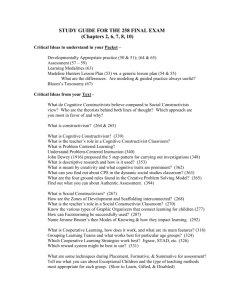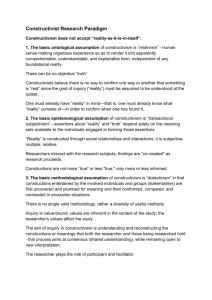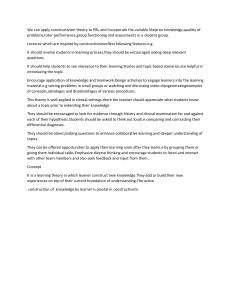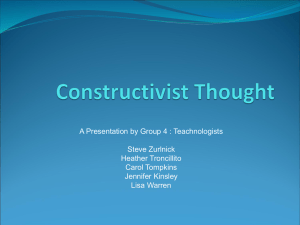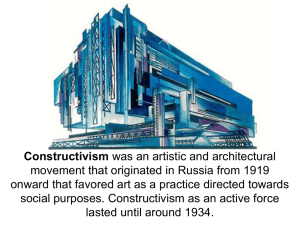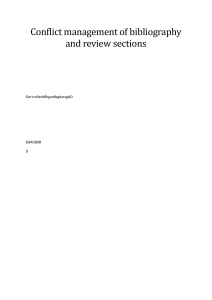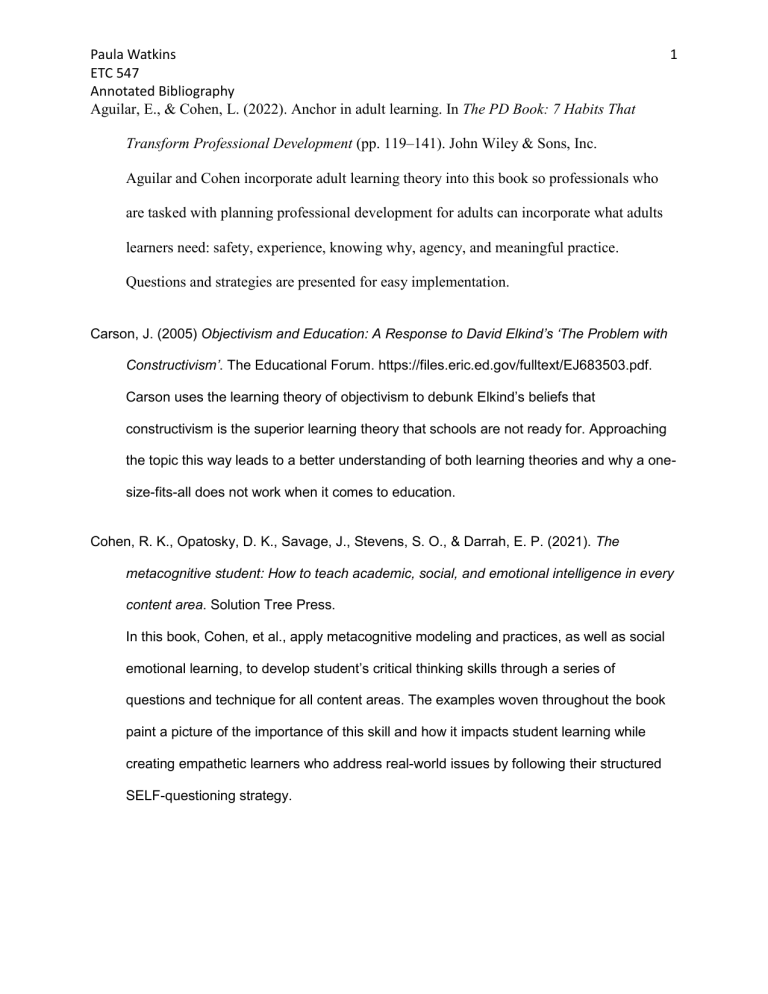
Paula Watkins ETC 547 Annotated Bibliography Aguilar, E., & Cohen, L. (2022). Anchor in adult learning. In The PD Book: 7 Habits That 1 Transform Professional Development (pp. 119–141). John Wiley & Sons, Inc. Aguilar and Cohen incorporate adult learning theory into this book so professionals who are tasked with planning professional development for adults can incorporate what adults learners need: safety, experience, knowing why, agency, and meaningful practice. Questions and strategies are presented for easy implementation. Carson, J. (2005) Objectivism and Education: A Response to David Elkind’s ‘The Problem with Constructivism’. The Educational Forum. https://files.eric.ed.gov/fulltext/EJ683503.pdf. Carson uses the learning theory of objectivism to debunk Elkind’s beliefs that constructivism is the superior learning theory that schools are not ready for. Approaching the topic this way leads to a better understanding of both learning theories and why a onesize-fits-all does not work when it comes to education. Cohen, R. K., Opatosky, D. K., Savage, J., Stevens, S. O., & Darrah, E. P. (2021). The metacognitive student: How to teach academic, social, and emotional intelligence in every content area. Solution Tree Press. In this book, Cohen, et al., apply metacognitive modeling and practices, as well as social emotional learning, to develop student’s critical thinking skills through a series of questions and technique for all content areas. The examples woven throughout the book paint a picture of the importance of this skill and how it impacts student learning while creating empathetic learners who address real-world issues by following their structured SELF-questioning strategy. Paula Watkins ETC 547 Annotated Bibliography 2 Fitzpatrick, R. & Hunt, D. (2019). How to design & teach workshops that work every time. Robfitz Ltd. All the tips and tricks one would need and need to consider when designing and teaching workshops. Kay, D., & Kibble, J. (2016, February 4). Learning theories 101: Application to everyday teaching and scholarship. Advances in Physiology Education. https://journals.physiology.org/doi/pdf/10.1152/advan.00132.2015 Kay and Kibble summarize the major learning theories (behaviorism, social cognitive theory, cognitive learning theory, constructivism, and social constructivism) through a mock curriculum used in a physiology lab course. These scenarios are helpful in visualizing the impact each theory has on the lab sessions and follows up by explaining the theory in more depth. This article would be an asset to subject matter experts entering the classroom in CTE programs. Killion, J. (2018). Assessing Impact: Evaluating professional learning (3 edition). Corwin Press. This guide provides evidence-based strategies for administrators, learning leaders, and evaluators to follow a step-by-step process in order to produce a thorough analysis of any professional learning program. This process is based on data, or identifies the lack of data, to ensure program effectiveness. Mcleod, S. (2023, June 15). Constructivism learning theory & philosophy of education. Simply Psychology. https://www.simplypsychology.org/constructivism.html. The author explains that according to the constructivism learning theory, learners are constantly making meaning of new learning experiences with the prior knowledge and belief they have of reality. They apply this new knowledge to continually update their interpretation of reality. This is a relevant resource for understanding the differences Paula Watkins ETC 547 Annotated Bibliography 3 between social constructivism, cognitive constructivism, and radical constructivism. The role of the teacher is that of a facilitator who knows their students' needs and can scaffold learning and plan hands-on activities to meet their needs. Muhammad, G. (2023). Unearthing Joy: A guide to culturally and historically responsive teaching and learning. Scholastic Professional. Muhammad continues to bring the importance of culturally responsive pedagogy to the forefront of education. Through humanizing pedagogy, Muhammad ensures that all members of a school community and provides a framework for to redesign curriculum that ensures equitable conditions for all. Richey, R. (1991, November 30). Designing instruction for the adult learner: Systematic training theory and practice. ERIC. https://eric.ed.gov/?id=ED367306. Instructional design is currently undergoing rapid expansion in the areas of: theory, technology, philosophy, and practical application. This book is dedicated to adapting design theory and practice to address the challenges stemming from this growth, specifically within the realm of adult learning. Snelling, J. (2021, October 23). Focus on UDL when using classroom technology. ISTE. https://www.iste.org/explore/classroom/focus-udl-when-using-classroom-technology This article encourages the use of Universal Design for Learning (UDL) to integrate technology in all aspects of a lesson to intentionally make content accessible to all students. Vance, J. (2022). Leading with a lends of inquiry: Cultivating conditions for curiosity and empowering agency. Elevate Books EDU. In this gem of a book, Vance shares how to use an inquiry cycle to plan and facilitate teacher-driven professional development. She has the reader consider their leadership Paula Watkins ETC 547 Annotated Bibliography 4 style and inspires them to lead with a lens of inquiry as an inquiry leader. She emphasizes the need to be reflective and how that can lead to a ripple effect of inquiry in professional learning for adults. These same principle could also be used in a classroom with students just as easily as they are used with adults. Weinstein, Y., & Sumeracki, M. (2019). Understanding how we learn: A visual guide. Routledge. In their book, cognitive psychologists Weinstein and Sumeracki address six effective learning strategies based on research. The book begins by presenting evidenced-based practices rooted in the science of learning. It then moves into explaining cognitive processes and strategies that support the cognitive processes a learner must go through to truly master content in an educational setting.
